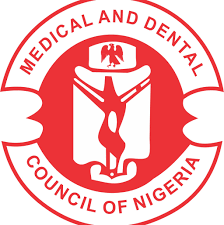Stakeholders in the Nigerian laboratory industry have identified wrong use of water as a major factor militating against the quality and reliable laboratory analysis in the country. Speaking in Lagos at a workshop on Laboratory Water Purification Technologies by Merck Group and Katchey Company Ltd, they said use of the wrong type of water contaminates results of lab analyses.
The Chief Executive Officer, Katchey Company Ltd., Mrs. Kate Isa who said the impact of wrong water was significant in the laboratory, argued that as much as water is a widely used reagent in the laboratory, its purification processes for different applications must be in line with regulatory policies.
Waterpurification
Isa explained that even water that is good enough to drink is not good enough for the laboratory because of the bacteria and viruses in it.
“There is a broad range of pure and ultra pure water purification systems designed for scientists working in pharmaceutical, clinical, food and beverage, academic, industry, research and governmental laboratories, hence, the need to identify the appropriate water purification system for any given application in line with international water quality standards and classification.
For instance, using water from the air conditioner to run analyses will not give you the right result,” she added.
Standards: Calling on Nigeria manufacturers and laboratory operators in the food and beverage industry to adopt international standards, she said it was the only way manufacturers would satisfy exportation standards.
Isa said the Standard Organisation of Nigeria, SON, had mobilised stakeholders to participate in the workshop in the area of water for purification and water for analysis to ensure they begin to play by the rules. “Very few labs care about the type of water they use for their analysis. Even those who try to purify their water use distillation system which does not remove all the impurities.”

Already, Katchey is setting up a training lab, to run training for graduate analysts who did not have access to laboratories or enough equipment in school. Stages: Further, Isa explained that there are stages in which water is used in the lab.
“If it is to wash your tools you can use type three water; for analyses, tests, etc., you will need type two water and when you get to the sophisticated equipment like HPLC and when you cannot afford any kind of impurity, you need type one water.”
The Market Director, Merck, France, Dr. Maurice Memmi said distillation is not enough to purify water.
Running costs: “The running cost of distillation is higher than the running cost of other modern water purification systems. To produce one litre of distilled water, you need 20 litres of water. It is capital intensive also and laboratories should consider other modern systems of water purification.
“We cannot grow anything without water. If you use analytical techniques, if you do bio-experiment you have to make sure you do not contaminate it with the wrong water, “he stressed. In a corroboration, the Director, SON Laboratory Services, Mr. Louis Njoku, said a heavy metal analysis on a product will be contaminated by water that is loaded with metals.
“If you are carrying out micro-bacteria analysis, do not contaminate the water you use for the dissolution of your sample. It will affect the result of your test and the general outcome of the process. “Laboratory analysts should ensure their facilities meet the requirements of ISO 17025, which is the standard for laboratory accreditation. It is achievable.”
By Chioma Obinna
Vanguard
ABUJA: Training Schedule for Basic Life Support BLS, Pediatric Advanced Life Support (PALS), Advanced Cardiovascular Life Support ACLS, First Aid, CPR, AED
PORTHARCOURT: Training Schedule for Basic Life Support BLS, Pediatric Advanced Life Support (PALS), Advanced Cardiovascular Life Support ACLS, First Aid, CPR, AED
LAGOS: Training Schedule for Basic Life Support BLS, Pediatric Advanced Life Support (PALS), Advanced Cardiovascular Life Support ACLS, First Aid, CPR, AED



